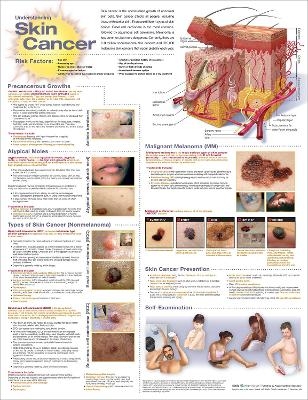Textbook of Aging Skin
Springer Berlin
978-3-662-47397-9 (ISBN)
Miranda A. Farage is a Research Fellow in the Global Clinical Sciences Innovation at the Procter & Gamble Company, Cincinnati, Ohio. Dr. Farage leads global research on genital health, dermatological testing and claims, new clinical methods development, sensitive skin, physiology, clinical toxicology, women's health, quality of life, and related fields. Dr. Farage has invented novel state-of-the-art clinical test methods that have resulted in efficient ways of assessing new technologies and products as well as the filing of 15 patent applications. She has published more than 200 manuscripts and chapters in peer-reviewed journals and medical books. She is the Editor-in-Chief of several books such as The Vulva; Textbook of Aging Skin, first edition; Topical Application and the Mucosa; and Skin, Mucosa and Menopause: Management of Clinical Issues. Dr. Farage is a member of many scientific societies including the American Academy of Dermatology, the European College of Society of Vulva Diseases, the National Vulvodynia Association, the American Society for Testing and Materials (ASTM) International, and the Science Advisory Board. Currently, she is serving on the editorial boards of more than a dozen scientific, dermatology, and medical journals. She received a Ph.D. in Medical Sciences and a master degree (MS) in Biology from the University of Illinois, Urbana-Champaign. Before joining Procter & Gamble, she was a faculty member at the Virginia Polytechnic Institute and State University (Virginia Tech). Dr. Kenneth Miller is Principle Consultant for Product Safety, Toxicology, and Regulatory Strategy at Margoshes Miller Consulting LLC. He is also the Associate Director for Global Product Safety, Regulatory and Microbiology in for the Feminine Care and Family Care business units at The Procter and Gamble Company. Dr. Miller is responsible for the strategic development and execution of research and testing in the areas of dermatoxicology, clinical safety and efficacy studies, post-market surveillance studies, epidemiology studies, environmental studies (biodegradation, solid waste disposal, aquatic and terrestrial toxicology and global waste disposal infrastructure), standard microbiological testing and microbiological methods development research (including molecular microbiology techniques). Too, he has responsibility for a team conducting microbiological and clinical research in toxic shock syndrome, superantigens, and vaginal microbial ecology. Dr. Miller has published over twenty-five manuscripts in the area of toxicology in peer-reviewed journals plus numerous abstracts and presentations at meetings of scientific societies. Dr. Miller is board-certified in toxicology (DABT) and a member of several scientific and professional societies. Dr. Howard Maibach joined the University of California Faculty as Assistant Professor and is currently Professor of Dermatology. Dr. Maibach, an expert in contact and occupational dermatitis, sees patients at the Environmental Dermatoses Clinic, which is part of the Dermatology Clinic at UCSF. His most active fields of research are in dermatopharmacology, dermatotoxicology, and environmental dermatoses. He has been doing human subject research for 45 years. He has been on the editorial board of more than 30 scientific journals. His bibliography includes more than 2790 publications and 100 books. He is member of 19 professional societies including the American Academy of Dermatology (AAD), San Francisco Dermatological Society (SFDS), North American Contact Dermatitis Group (NACDG), American Contact Dermatitis Society (ACDS), International Contact Dermatitis Research Group (ICDRG), Society of Toxicology (SOT), European Environmental and Contact Dermatitis Research Group (EECDRG), and the Internal Commission on Occupational Health. He is a consultant to government, academia, and industry worldwide. Dr. Howard Maibach was honored as the 2013 recipient of The
Adipose-Derived Stem Cells and Their Secretory Factors for Skin Aging and Hair Loss.- Advanced Age Pruritus.- Age-Induced Hair Graying and Oxidative Stress.- Age-Related Morphometric Changes of Inner Structures of the Skin.- Assessed by In Vivo Reflectance Confocal Microscopy.- Age-related changes in skin mechanical properties.- Aging Genital Skin and Hormone Replacement Therapy Benefits.- Aging and Melanocytes Stimulating Cytokine Expressed by Keratinocyte and Fibroblast.- Aging of Epidermal Stem Cells.- Appearance and Internal Aging.- Basophilic (Actinic) Degeneration of the Dermis: An Easy Histological Scoring Approach in Dermal Photo-Aging.- Biology of Stratum Corneum: Tape Stripping and Protein Quantification.- Buffering Capacity Considerations in the Elderly.- Changes in Nail in the Aged.- Changes in the Composition of the Cornified Envelope During Skin Aging: A Calcium Centric Point of View.- Cluster of Differentiation 1d (CD1d) and Skin Aging.- Considerations forThermal Injury: The Elderly as a Sensitive Population.- Corneocyte Size and Cell Renewal: Effects of Aging and Sex Hormones.- Cyanoacrylate Skin Surface Strippings.- Degenerative Changes in Aging Skin.- Facial Skin Rheology.- Histology of Microvascular Aging of Human Skin.- Hyaluronan and the Process of Aging in Skin.- Impact of Dietary Supplements on Skin Aging.- Influence of Exogenous Factors on Skin Aging.- Major Changes in Skin Function in the Elderly and Their Contributions to Common Clinical Challenges.- Neurotrophins and Skin Aging.- Overview of the histology of aging skin in laboratory models.- Pathology of Aging Skin.- Pathomechanisms of Endogenously Aged Skin.- Pathomechanisms of Photoaged Skin.- Peroxisome Proliferator-Activated Receptors: Role in Skin Health and Appearance of Photoaged Skin.- Physiological Variations During Aging.- Platinum and Palladium Nanoparticles Regulate the Redox Balance and Protect Against Age-Related Skin Changes in Mice.- Possible Involvement of Basement Membrane Damage by Matrix Metalloproteinases, Serine Proteinases and Heparanase in Skin Aging Process.- Proteoglycans in Skin Aging.- Skin Aging and Health.- Skin Aging: A Brief Summary of Characteristic Changes.- Skin Aging: An Immunohistochemical Evaluation.- Stratum Corneum Cell Layers.- The Extracellular Matrix Protein 1 (ECM1) in Molecular-Based Skin Biology.- The Genetics of Skin Aging.- The Stratum Corneum and Aging.- Unique Skin Immunology of the Lower Female Genital Tract with Age.- Vaginal Secretions with Age.- arNOX: A New Source of Aging.- arNOX: New Mechanisms of Skin Aging and Lipoprotein Oxidation.- Alterations of Energy Metabolism in Cutaneous Aging.- Cellular Energy Metabolism and Oxidative Stress.- Cutaneous Oxidative Stress and Aging.- DNA Damage and Repair in Skin Aging.- Fibulin-5 Deposition in Human Skin: Decrease with Aging and UVB Exposure and Increase in Solar Elastosis.- Aging and Intrinsic Aging: Pathogenesis and Manifestations.- Biological Effects ofEstrogen on Skin.- Climate Change and its Dermatologic Impact on Aging Skin.- Cutaneous Responses to Tropospheric Ozone Exposure.- DNA Biomarkers in Aging Skin.- Environmental and Genetic Factors in Facial Aging in Twins.- Infrared A-Induced Skin Aging.- Infrared Radiation: Mechanisms, Implications, and Protection.- Perimenopausal Aging and Oral Hormone Replacement Therapy.- Sebum Production.- Skin Photodamage Prevention: State of the Art and New Prospects.-Tobacco Smoke and Skin Aging*.- Aging skin as a diagnostic tool for internal diseases: A chance for dermatology.- Aging-Associated Non-Melanoma Skin Cancer: A Role for the Dermis.- Atopic Dermatitis in the Aged.- Carcinogenesis: UV Radiation.- Control of Skin Blood Flow.- Cutaneous Effects and Sensitive Skin with Incontinence in the Aged.- Dry Skin in Diabetes Mellitus and in Experimental Models of Diabetes.- Facial Wrinkling: The Marquee Clinical Sign of Aging Skin.-Hyperpigmentation in Aging Skin.- Impaired Wound Repair and Delayed Angiogenesis.- Influence of Race, Gender, Age and Diabetes on Blood Flow.- Melanoma and Skin Aging.- Neoplastic Skin Lesions in the Elderly Patient.- Non-neoplastic Disorders of the Aging Skin.- Non-surgical Modalities of Treatment for Primary Cutaneous Cancers.- Pigmentation in Ethnic Groups.- Psoriasis and Aging.-Skin Aging and Cellulite in Women.- Skin Itch in the Elderly.- Sunlight Exposure and Skin Thickness.- Measurements as a Function of Age: Risk Factors for Melanoma.- The New Face of Pigmentation and Aging.- Aging and Senescence of Skin Cells in Culture.- Animal Models.- Assessing Quality of Life in Older Adult Patients with Skin Disorders.- Bioengineering Methods and Skin Aging.- Corneocyte Analysis.- Glycation and Skin aging.- Hydration of the Skin Surface.- In Vitro Method to Visualize UV-Induced Reactive Oxygen Species in a Skin Equivalent Model.- Molecular Concentration Profiling in Skin Using Confocal Raman Spectroscopy.- New Insights in Photoaging Process Revealed by In Vitro Reconstructed Skin Models.- Probiotics in Aging Skin.- Reconstructed Skin to Create in vitro Flexible Models of Skin Aging: New Results and Prospects.- Reflectance confocal microscopy and aging.- Skin Aging: A Generalization of the Micro-inflammatory Hypothesis.- Skinomics: A New Toolbox to Understand Skin Aging.- Structure of Stratum Corneum Lipid Studied by Electron Paramagnetic Resonance.- The Measurement and Perception of Uneven Coloration in Aging Skin.- The Potential of Probiotics and Prebiotics for Skin Health.- The Structural and Functional Development of Skin During the First Year of Life: Investigations Using Noninvasive Methods.- Transepidermal Water Loss in Young and Aged Healthy Humans.- Aging Skin Microbiology.- Application of In Vitro Methods in Preclinical Safety Assessment of Skin Care Products.- Dermal Safety Evaluation: Use of Disposable Diaper Products in the Elderly.- Irritant Contact Dermatitis.- Percutaneous Penetration of Chemicals and Aging Skin.- Safety Evaluation in the Elderly Via Dermatological Exposure.- Susceptibility to Irritation in the Elderly.- The Vaginal Microbiota in Menopause.- Genetic Basis of Healthy Skin Aging.- Genodermatoses with Premature Aging/Syndromes.- Resetting Skin Genome Back to Health Naturally with GHK.- Assessing Quality of Ordinal Scales Depicting Skin Aging Severity.- The Baumann Skin Typing System.- Aging Skin: Nourishing from Out-In. Lessons from Wound Healing.- Aging Skin: Nourishing from the Inside Out, Effects of Good Versus Poor Nitrogen Intake on Skin Health and Healing.- Discovering the link between nutrition and skin aging.- Preventive Skin Care During Skin Aging.- Advanced Glycation End Products (AGEs): Emerging Mediators of Skin Aging.- Aging Skin: Some Psychosomatic Aspects.- Psychological and Social Implications of Aging Skin: Normal Aging and the Effects of Cutaneous Disease.- Facial Skin Attributes and Age Perception.- The Neuroscience of Age Perception.- Aging in Asian Skin.- Determinants in the Rate of Skin Aging: Ethnicity, Gender, and Lifestyle Influences.- Gender Differences in Skin.- Effects of Aging on Skin Reactivity.- Perceptions of Sensitive Skin with Age.- Skin Reactivity of the Human Face: Functional Map and Age Related Differences.- Aging and Anti-Aging Strategies.- Antiaging Effects of Algae-Derived Mycosporine-Like Amino Acids (MAAs) on Skin.- Changes in Vulvar Physiology and Skin Disorders with Age and Benefits of Feminine Wipes in Postmenopausal Women.- Cosmetic Anti-Aging Ingredients.- Cosmetics and Aging Skin.- Influence of aging on sensorial perception of skin care products.- Innovative Nutraceutical Approaches to Counteract the Signs of Aging.- Long-Term Estrogen Effects on Sun-Exposed Human Skin.- Neck Rejuvenation with Fractional CO2 Laser.- Solutions and Products for Managing Female Urinary Incontinence.- The Role of Neuropeptides in Skin Wound Healing.- Therapeutic alternatives for the treatment of epidermal aging.- Topical GrowthFactors for Skin Rejuvenation.- Topical Peptides and Proteins for Aging Skin.- Wound Healing as We Age.- A New Paradigm for the Aging Face.- Botulinum Toxin Type A and Laser Resurfacing Provide Adjunctive Benefit to Skin Aging.- Bridging Science and Beauty.- Cosmetic Surgery in the Elderly.- Elderly Face No Added Risk from Cosmetic Surgery.- Facial Rejuvenation: A Chronology of Procedures.- Punctural Face Rejuvenation.- Update on Asian Eyelid Anatomy and Periocular Aging Change.- Brain-Skin Connection: Impact of Psychological Stress on Skin.- Place your bets, the die is cast - The skin at the retiring age today and tomorrow.- Sleep and Aging Skin.- Unified Mind/Body for a Healthy Aging Skin.- Key Trends Driving Anti-Aging Skin Care in 2009 and Beyond.- Marketing and Product Design of Anti-Aging Skin Care Products.
| Erscheint lt. Verlag | 22.10.2016 |
|---|---|
| Zusatzinfo | XLVII, 2222 p. 573 illus., 424 illus. in color. In 3 volumes, not available separately. |
| Verlagsort | Berlin |
| Sprache | englisch |
| Maße | 178 x 254 mm |
| Themenwelt | Medizin / Pharmazie ► Medizinische Fachgebiete ► Dermatologie |
| Medizin / Pharmazie ► Medizinische Fachgebiete ► Geriatrie | |
| Medizin / Pharmazie ► Medizinische Fachgebiete ► Gynäkologie / Geburtshilfe | |
| Schlagworte | Anti-aging strategies • Bioengineering • cosmetic surgery • Malignant and non-malignant skin conditions • Skin damage |
| ISBN-10 | 3-662-47397-6 / 3662473976 |
| ISBN-13 | 978-3-662-47397-9 / 9783662473979 |
| Zustand | Neuware |
| Haben Sie eine Frage zum Produkt? |
aus dem Bereich



